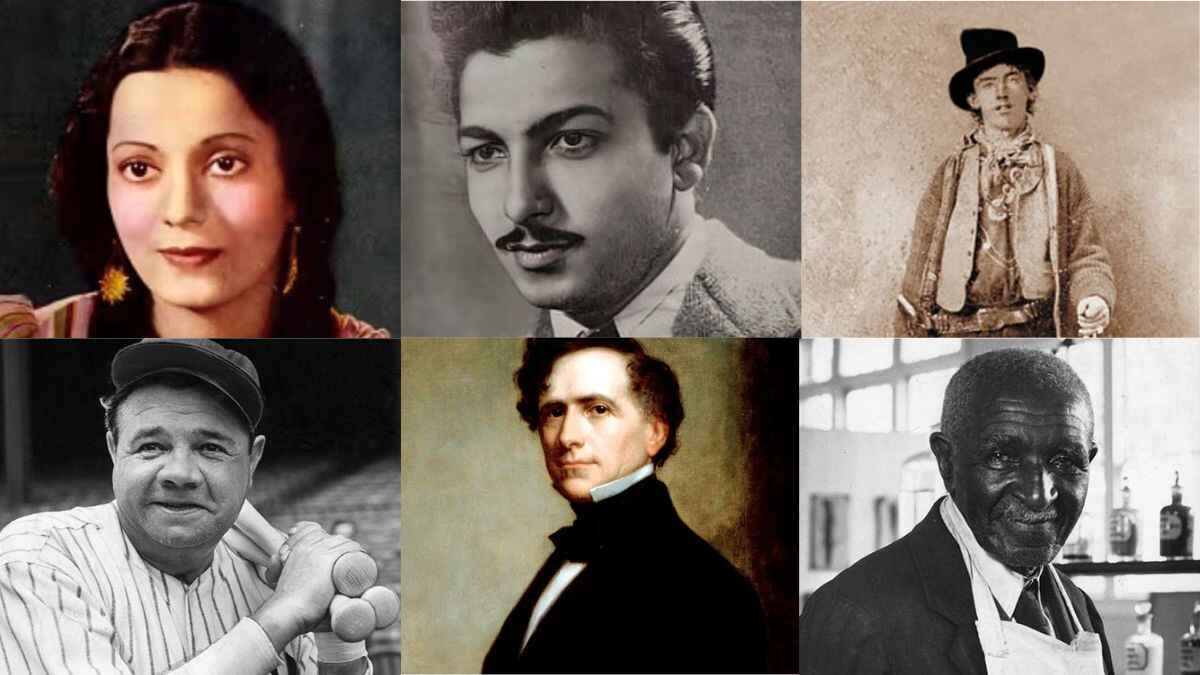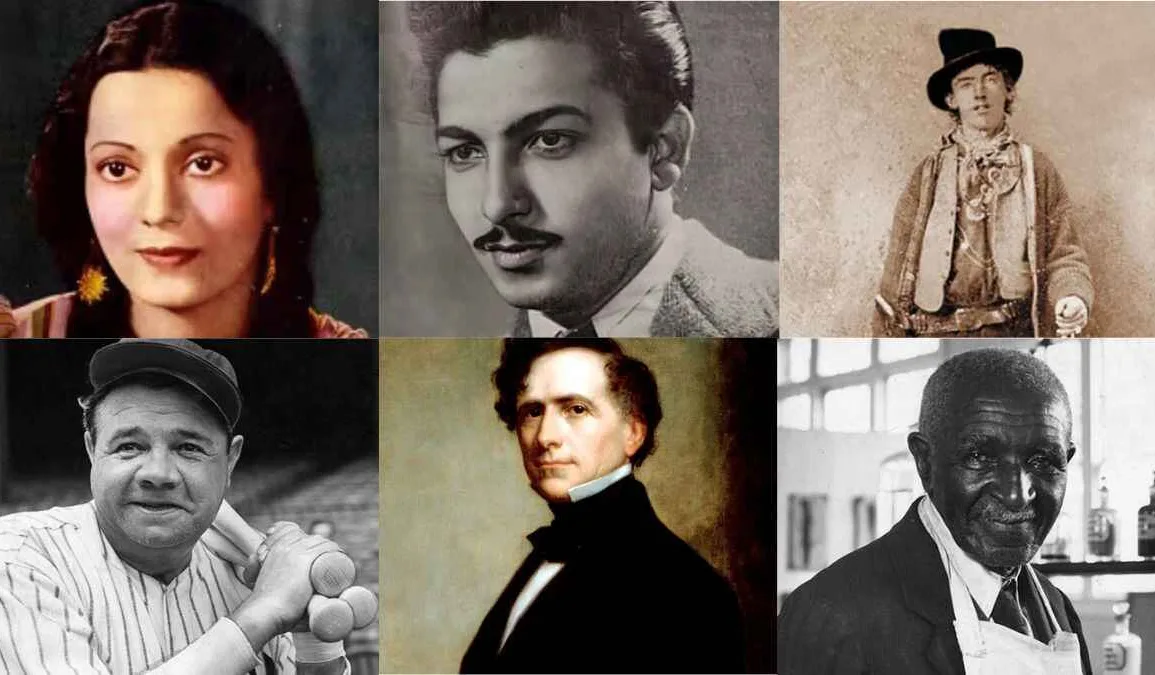
As we count down the days remaining in the year, with only 170 days left, July 14 stands as a date that has witnessed numerous noteworthy events, birthdays, and deaths throughout history. In this edition of historical highlights, we delve into the significant events that have shaped our world on this day.
Historical Events
1535: Emperor Charles V conquers Tunis
Emperor Charles V, the ruler of the Holy Roman Empire, achieved a significant military victory by capturing the city of Tunis. This conquest further solidified his authority and expanded his empire’s influence in North Africa.
1570: Pope Pius V introduces a standardized Roman Missal
Pope Pius V implemented a reform of the Council of Trent by introducing a standardized version of the Roman Missal. This text, which outlined the order and prayers of the Latin Mass, remained unchanged for four centuries, significantly impacting the Catholic Church’s liturgical practices.
1789: Bastille Day marks the beginning of the French Revolution
The storming of the Bastille prison in Paris marked the commencement of the French Revolution, an event that would forever reshape France and influence the course of modern history. Bastille Day is now celebrated as France’s national day.
1790: Fête de la Fédération commemorates the first anniversary of the French Revolution
Across France, the Fête de la Fédération was held on the first anniversary of the French Revolution. This grand celebration, attended by King Louis XVI and Queen Marie Antoinette, aimed to symbolize national unity and the ideals of the Revolution.
1791: Joseph Priestley forced to leave Birmingham due to the Priestley Riots
Joseph Priestley, a renowned supporter of the French Revolution, was driven out of Birmingham, England, during the Priestley Riots. These riots, fueled by religious and political tensions, destroyed Priestley’s home and laboratory.
1853: US President Franklin Pierce opens the “Exhibition of the Industry of All Nations”
President Franklin Pierce inaugurated the “Exhibition of the Industry of All Nations,” commonly known as the World’s Fair, at the Crystal Palace in New York City. This grand exhibition showcased technological advancements and cultural achievements from around the world.
1870: Mary Todd Lincoln was granted a life pension by the United States Congress
The United States Congress awarded Mary Todd Lincoln, the widow of President Abraham Lincoln, a life pension of $3,000 per year. This pension recognized her status as the former First Lady and provided financial support in the aftermath of her husband’s assassination.
1909: German Chancellor Bernhard von Bülow resigns
Bernhard von Bülow, the Chancellor of Germany, stepped down from his position and was succeeded by Theobald von Bethmann Hollweg. This change in leadership marked a significant shift in German politics during a crucial period in European history.
1914: Robert Goddard receives the first patent for a liquid-fueled rocket design
American engineer Robert Goddard was granted a patent for his design of a liquid-fueled rocket. This invention laid the foundation for the development of modern rocketry and space exploration.
1934: The New York Times erroneously declares Babe Ruth’s 700 HR record to stand for all time
In a mistaken report, The New York Times declared that Babe Ruth’s record of 700 home runs would remain unchallenged. However, this record would eventually be surpassed by Hank Aaron, who hit his 715th home run in 1974.
1938: Benito Mussolini publishes an anti-Jewish African manifesto
Italian dictator Benito Mussolini released an anti-Jewish manifesto focused on Italian African possessions. This publication exemplified Mussolini’s racist policies and set the stage for further persecution of Jews during the fascist regime.
1953: George Washington Carver’s boyhood home becomes the first US national monument dedicated to a black American
The boyhood home of George Washington Carver, an accomplished agricultural scientist and inventor, was designated as the first national monument in the United States dedicated to an African American. This recognition honoured Carver’s groundbreaking contributions and celebrated his legacy.
Sports Events
1934: The New York Times erroneously declares Babe Ruth’s 700 HR record to stand for all time
Once again, The New York Times mistakenly reported that Babe Ruth’s record of 700 home runs would remain unmatched. However, this record would later be surpassed by other legendary baseball players.
1949: Czech tennis stars Jaroslav Drobný and Vladimir Černík defect
During a tennis tournament in Gstaad, Switzerland, Czech players Jaroslav Drobný and Vladimir Černík defected from their home country and accepted Egyptian citizenship. This act had significant implications for their personal lives and professional careers.
1963: Jacques Anquetil wins his third consecutive Tour de France
French cyclist Jacques Anquetil made history by winning his third consecutive general classification event in the Tour de France. He became the first rider to achieve this remarkable feat, solidifying his status as one of the race’s greatest champions.
1967: Eddie Matthews hits his 500th home run
Houston Astros player Eddie Matthews achieved a remarkable milestone by hitting his 500th career home run off San Francisco Giants pitcher Juan Marichal. This accomplishment further elevated Matthews’ status as one of baseball’s premier power hitters.
1974: Billy Martin becomes the first AL manager ejected from two games in one day
New York Yankees manager Billy Martin made baseball history by becoming the first American League manager to be ejected from two games in a single day. Martin’s fiery personality often led to clashes with umpires and memorable on-field incidents.
2018: Angelique Kerber wins Wimbledon Women’s Tennis
German tennis player Angelique Kerber triumphed at Wimbledon, becoming the first German woman since Steffi Graf in 1996 to claim the prestigious title. Kerber’s victory over Serena Williams solidified her status as one of the top players in the world.
2019: Novak Đoković wins longest-ever Wimbledon Men’s Tennis Final
In a marathon match, Novak Đoković emerged victorious in the longest-ever Wimbledon Men’s Tennis Final, defeating Roger Federer in a gruelling five-set contest. This victory marked Đoković’s 16th Grand Slam title and further solidified his position among the tennis’ elite.
Birthdays
|
Name |
Occupation |
Birthdate |
Birthplace |
Achievements |
|
Gertrude Bell |
British archaeologist |
1868 |
Washington Hall, County Durham, England |
Pioneering archaeologist, explored and documented ancient civilizations in the Middle East, laid foundation for modern archaeology |
|
Ante Pavelić |
Croatian leader |
1889 |
Bradina, Austria-Hungary |
Leader of the Independent State of Croatia during WWII, responsible for war crimes and acts of genocide |
|
William Hanna |
American animator, founder of Hanna-Barbera |
1910 |
Melrose, New Mexico |
Renowned animator, co-founder of Hanna-Barbera studio, created iconic animated series like Tom and Jerry, Scooby-Doo |
|
Woody Guthrie |
American folk singer-songwriter |
1912 |
Okemah, Oklahoma |
Prolific folk singer-songwriter, known for socially conscious lyrics and iconic songs like “This Land Is Your Land” |
Art and Culture
1951: The first colour telecast of a sporting event
A major milestone in television history, the first colour telecast of a sporting event took place in 1951. Viewers witnessed a horse race in vibrant colour, forever changing the way audiences experienced live broadcasts.
1968: WSWO TV channel 26 in Springfield, OH, begins broadcasting
WSWO TV channel 26 in Springfield, Ohio, started its broadcast, bringing news, entertainment, and informative programming to the local community.
1969: “Easy Rider” is released
Directed by Dennis Hopper and starring himself, Peter Fonda, and Jack Nicholson, “Easy Rider” premiered, captivating audiences with its countercultural themes and iconic soundtrack.
1969: WMUL TV channel 33 in Huntington, WV, begins broadcasting
WMUL TV channel 33 in Huntington, West Virginia, commenced its broadcast, providing educational and informative content to the region as part of the PBS network.
1982: “Pink Floyd – The Wall” premieres
The film adaptation of “Pink Floyd – The Wall,” directed by Alan Parker, premiered in London. The movie, based on the iconic concept album by Pink Floyd, garnered critical acclaim for its visual style and powerful storytelling.
1983: Nintendo releases the game “Mario Bros.”
Nintendo launched the popular arcade game “Mario Bros.,” introducing the world to the beloved characters Mario and Luigi, which would go on to become iconic figures in the world of video games.
2018: Steve Miller’s star is unveiled on Hollywood’s Walk of Fame
Steve Miller, the acclaimed American musician known for hits like “The Joker” and “Fly Like an Eagle,” received his star on the Hollywood Walk of Fame, honouring his contributions to the music industry.
Notable Deaths
1223: Philip II of France
Philip II, the longest-reigning king of France, passed away at the age of 58. His rule left a significant impact on the kingdom and shaped the course of medieval Europe.
1859: Billy the Kid
Frontier outlaw and gunfighter Billy the Kid was shot and killed by Sheriff Pat Garrett at the age of 21. His notorious exploits and legendary status have made him an enduring figure in the American Old West.
1881: Paul Kruger
Paul Kruger, the third president of the South African Republic, died of pneumonia at the age of 76. Kruger played a crucial role in the history of South Africa, leading the Boers in their struggle against British imperialism.
1900: Adlai Stevenson I
Adlai Stevenson I, the 23rd vice president of the United States, passed away at the age of 74. He served under President Grover Cleveland and made significant contributions to American politics and diplomacy.
1965: Adlai Stevenson II
Adlai Stevenson II, the 31st governor of Illinois and two-time Democratic nominee for president died of a heart attack at the age of 65. He was known for his eloquence and progressive political ideals.
1993: Madan Mohan Kohli
Madan Mohan Kohli, was a music composer who gave hits like “Kaun Aaya Mere Man Ke Dwaare”, and “Tum Bin Jeevan Kaisa Jeevan”
2017: Leela Chitnis
Indian actress Leela Chitnis, who appeared in over 200 films, died at the age of 83. Her versatile performances and significant contributions to the Indian film industry earned her a special place in cinema history.
July 13th is a day that has seen both great triumphs and tragic losses. However, it is also a day that has witnessed the birth of some of history’s most influential figures. We hope you have enjoyed learning about some of the events and people that have made this day so significant.
ALSO READ| Today in History, 12 July: What Happened on this Day
ALSO READ| Today in History, 13 July: What Happened on this Day – Birthday, Events, Politics, Death & More



